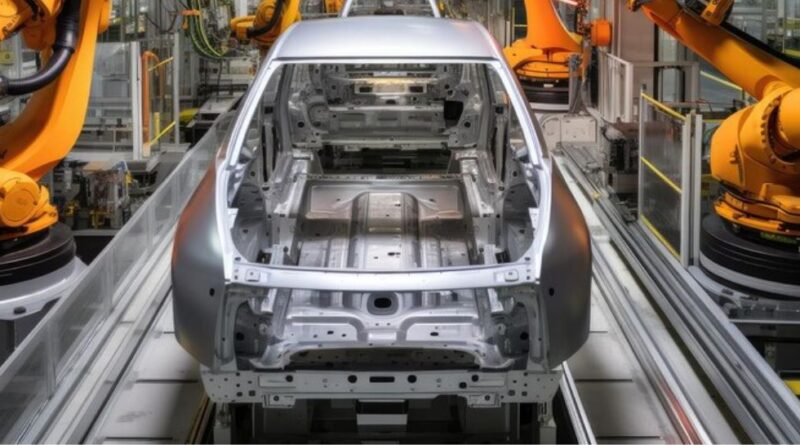Top 10 Machine Solutions Driving Innovation in Industrial Automation
The industrial automation industry is experiencing a rapid transformation fueled by groundbreaking machine solutions reshaping businesses’ operations. As we look towards 2024, a new wave of innovative technologies is set to revolutionize various sectors, enhancing efficiency, productivity, and sustainability. From AI-driven robots to advanced sensors and data analytics tools, these top 10 machine solutions will redefine the industrial landscape.
Importance of Innovation in Industrial Automation
Innovation plays a vital role in the growth and success of any industry, and industrial automation is no exception. With new technologies, businesses can optimize operations, reduce costs, and enhance overall performance. By embracing innovation, companies can stay ahead of the competition, adapt to changing market demands, and unlock new growth opportunities. In industrial automation, the continuous development of machine solutions drives progress, enabling businesses to achieve higher efficiency and productivity.
Here are 10 of the most innovative machine solutions across all industries
1- Machine Learning and AI in Industrial Automation
Machine learning and artificial intelligence (AI) are revolutionizing industrial automation by enabling machines to learn from data, make decisions, and perform tasks with human-like intelligence. AI-driven systems can analyze vast amounts of data to identify patterns, optimize processes, and make real-time adjustments, leading to increased accuracy, improved productivity, and reduced downtime.
2- Robotics and Automation in Industrial Processes
Robots have long been a cornerstone of industrial automation, but recent advancements have increased their capabilities. Collaborative robots, or cobots, work alongside humans, enhancing safety and efficiency in manufacturing processes. Robots are transforming industries such as automotive, electronics, and healthcare with their ability to perform repetitive tasks with precision and speed.
3- Impact of IoT on industrial automation
The Internet of Things (IoT) has paved the way for interconnected devices, enabling seamless communication and data exchange. In industrial automation, IoT is crucial in creating smart factories, where machines, sensors, and devices are connected to optimize operations. IoT-powered solutions provide real-time insights, enhance predictive maintenance, and enable remote monitoring and control of industrial processes.
4- Predictive maintenance and data analytics
Data analytics has become a game-changer in industrial automation, enabling businesses to harness the power of data for informed decision-making. By leveraging advanced analytics tools, companies can gain valuable insights into their operations, optimize performance, and predict maintenance needs. Predictive maintenance helps prevent equipment failures, reduce downtime, and maximize productivity.
5- Cloud Computing and Edge Computing
Cloud computing and edge computing transform how industrial automation systems are deployed and managed. Cloud-based control systems offer scalability, flexibility, and remote accessibility, allowing businesses to centralize data, improve collaboration, and enhance operational efficiency. On the other hand, edge computing brings computing power closer to the source of data generation, enabling real-time processing and reducing latency.
6- Augmented Reality and Virtual Reality in IA
Augmented reality (AR) and virtual reality (VR) are no longer limited to the gaming and entertainment industries. In industrial automation, AR and VR technologies are used for training, maintenance, and remote assistance. AR enables workers to overlay digital information onto the real-world environment, while VR immerses users in a virtual environment, enabling realistic simulations and enhanced decision-making.
7- Additive Manufacturing and 3D Printing
Additive manufacturing, often referred to as 3D printing, is revolutionizing the manufacturing industry by enabling the production of complex, customized parts with greater efficiency and reduced waste. This technology allows businesses to create prototypes, tooling, and even end-use parts on demand, reducing lead times and costs. Additive manufacturing is set to disrupt traditional manufacturing processes and open up new possibilities for design and production.
8- Autonomous Vehicles and Drones
Autonomous vehicles and drones are transforming the logistics and transportation industries, offering increased efficiency, reduced costs, and improved safety. Self-driving vehicles can optimize delivery routes, minimize fuel consumption, and enhance supply chain operations. On the other hand, drones enable aerial inspections, inventory management, and remote monitoring of assets, revolutionizing industries such as agriculture, construction, and energy.
9- Cybersecurity in Industrial Automation
As industrial automation becomes increasingly interconnected, ensuring robust cybersecurity measures is paramount. With the rise of cyber threats, protecting critical infrastructure, sensitive data, and intellectual property is crucial. Industrial automation systems need robust security frameworks, including encryption, access controls, and intrusion detection systems, to safeguard against cyber attacks and ensure uninterrupted operations.
10- Industrial Automation Trends and Predictions
Looking ahead, the future of machine solutions in industrial automation promises even greater advancements. Emerging technologies such as quantum computing, advanced robotics, and nanotechnology hold immense potential to revolutionize industries. The convergence of different technologies and ongoing research and development will continue to drive innovation and shape the industrial automation landscape.
Conclusion
In conclusion, the top 10 machine solutions driving innovation in industrial automation in 2024 will transform how businesses operate. From AI-driven robots and IoT-powered systems to data analytics and augmented reality, these technologies offer unprecedented opportunities for efficiency, productivity, and sustainability. By embracing innovation and staying abreast of the latest advancements, businesses can position themselves at the forefront of industrial automation and unlock new horizons of growth. The future is promising, and these machine solutions are paving the way for a revolution in industrial automation.

